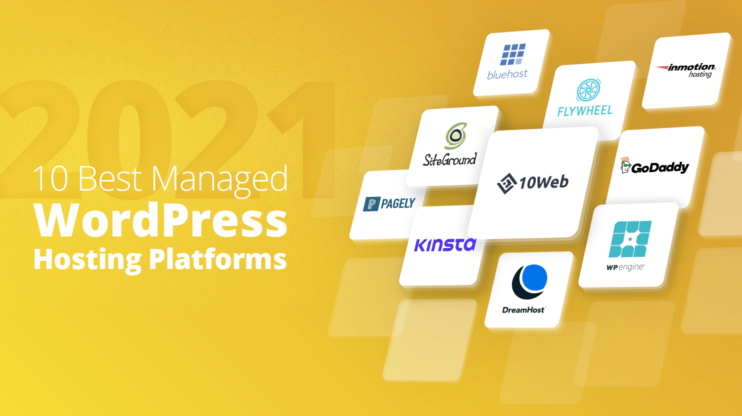What’s dedicated hosting?
Dedicated hosting is an extremely powerful hosting type where a single server hosts a single website. You don’t share the resources of the server – the disk space, the bandwidth, processor, etc. – with any other website.
Dedicating hosting is flexible for adding software and changing server configurations, highly reliable compared to shared hosting, and customizable according to your requirements. You have full root and admin access, so you can control everything from security to the operating system. Looks very impressive, right?
Statistics
Having understood what dedicated hosting is, let’s take a look at its popularity.
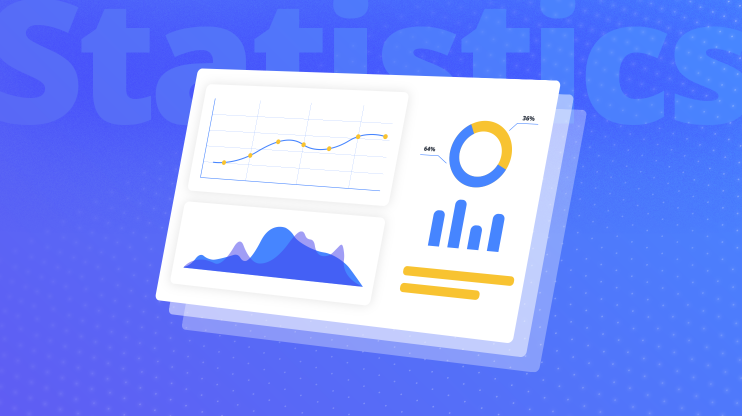
The popularity of the dedicated hosting is on the rise. According to statista, the size of the dedicated hosting market has been growing continuously from 2010 to 2016. The original source of the data is based on the 2017 Microsoft Cloud and Hosting Summit: Digital Transformation at Work. It was predicted to reach 6.53 billion U.S. dollars worldwide in 2020. Let’s just sit back and watch!
How does dedicated hosting work?
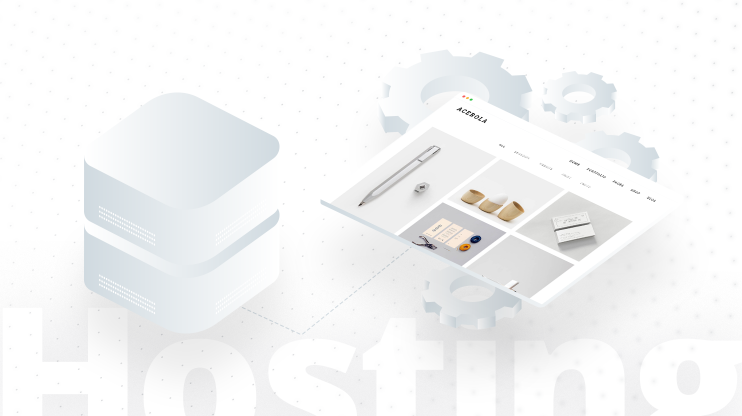
Customizability communicates the essence of dedicated hosting in a single word.You need to know how dedicated servers actually work to understand why. The dedicated hosting’s work process is divided into three main phases.
Firstly, you select Hardware.
You can customize your hardware level based on the processor type, memory, drives, and much more. This gives not only a lot of freedom but also a lot of responsibility. You can decide whether you want a single processor with up to six cores or a dual processor with up to twenty-four cores. For a single processor, you can get up to 64 GB DDR4 of RAM. For a dual-processor you can get up to 256 GB DDR4 of RAM. It all depends on your project’s scale.
Moreover, you can add SATA, SAS, and SSD drives of various sizes to your local storage and organize those drives into a RAID set. Further, you can customize your server by adding NAS or SAN block storage, a dedicated load balancer, or a firewall.
Next, it’s time to select Software.
There are a lot of options in terms of what software to install. You can select your operating system from different editions of Windows Server, CentOS, Debian, and Ubuntu. You can configure the control of your server from cPanel, WHM, or Plesk.
You will need Hyper-V, VMware ESXi, or Xen Hypervisor if you decide to run a virtual server on your dedicated server.
If you want additional software, you can consider options like CMS software, mail software, FTP software, and much more depending on the hardware configuration.
Finally, there come additional services.
You have the opportunity to choose additional services, such as server migration, cloud backup, various security services, DDoS protection, firewalls, and rapid-response monitoring.
Selecting your customized hardware, software, and additional services, lays down the foundations of your dedicated server!
Who needs dedicated hosting?
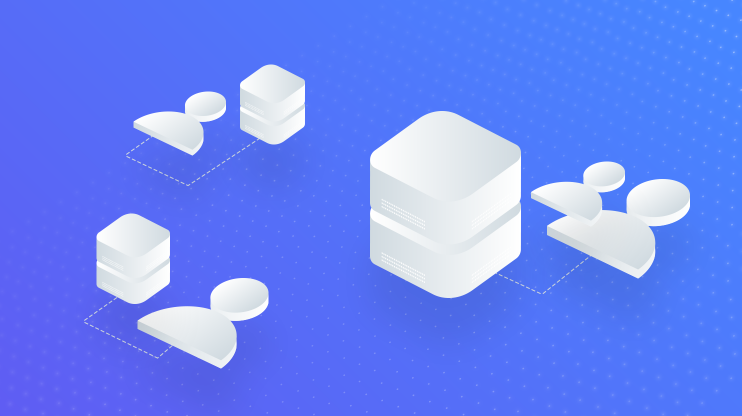
If you’re a developer, a tech-savvy person or a business owner who has an IT team, dedicated hosting can be a great choice for you.
A dedicated server is ideal for hosting complex online applications and high-traffic websites requiring a high level of security to payment processes. Furthermore, it is also preferable for storing sensitive personal and financial data and hosting multiple websites. Therefore, very often dedicated hosting is the choice of larger corporations with several IT departments.
Besides, renting or buying a dedicated server can be very costly and require a lot of tech knowledge to maintain it. You need to have a dedicated team of professionals responsible for day-to-day operations. It is not cost-efficient for beginners, startups or really small businesses to use a dedicated hosting provider.
But before deciding whether you need a dedicated server for your project, let’s recap what dedicated hosting is and do a pros and cons comparison.
Pros and Cons of dedicated hosting
Pros
Dedicated hosting comes with a considerable number of advantages.
- Higher Level of Security: There is no threat of neighboring sites affecting your website, simply because you don’t have neighbors. You are able to customize the security measures per your needs and requirements.
- Performance Reliability: Server uptime is higher and traffic fluctuations do not impact your website’s performance, because you don’t share resources with any other website.
- Control & Variety of Choice: You have total control over your server and can install any software or application as you prefer.
- High Speed: Switching from shared hosting or VPS to dedicated hosting will speed up your site. It’s all thanks to a better operating system and server control and caching.
- Customer Support: Most of the dedicated hosting providers have great 24/7 customer support with live chat, email support, and phone call options.
Cons
Every coin has two sides, and dedicated hosting is not an exception.
- Expensive: Since the entire server with all its resources is dedicated to your site, the pricing plans are quite expensive. The cost includes both the physical hosting and the hardware on which the site resides.
- Technical Knowledge: Operating a dedicated hosting requires the technical knowledge about setting up, running or managing, installing, and administering the server.
FAQs
What is better, dedicated server hosting or cloud hosting?
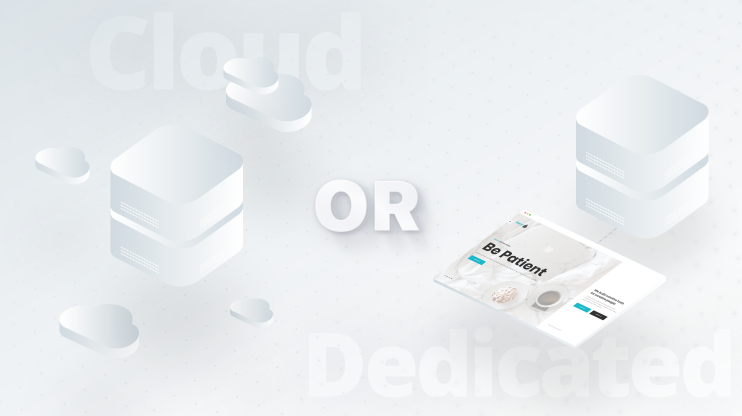
The choice between dedicated server hosting and cloud hosting fully depends on your project’s goals, objectives, and resources. We already know what dedicated hosting is. Cloud hosting, on the other hand, is a network of virtual servers managed by your cloud hosting provider. The cloud server’s performance, security, and control are similar to those of a dedicated server. The prime factor that makes cloud hosting better than dedicated hosting is the price. The cost is less, because you don’t have to purchase any hardware, and you pay for what you use or need. The reasons why you should move your website to cloud are numerous: for example, scalability, flexibility, cost-efficiency, and recovery factor.
What is fully managed dedicated hosting?
With fully managed dedicated hosting you have all the benefits of a dedicated server without the responsibility to manage and maintain anything. Fully managed dedicated hosting is an isolated environment where the hosting provider manages all the server-related tasks: Everything from the setup, administration, and management to server support. Very often fully managed dedicated hosting providers assist with consultations on improving your server’s speed, reliability, website’s performance, and other technical details.
Which hosting is better for WordPress: shared hosting or dedicated hosting?
Shared hosting is a type of web hosting where a single physical server hosts multiple sites. System resources are shared among customers of the server on the on-demand basis. Each customer gets a percentage of everything from RAM and CPU, and other elements such as the single MySQL server, Apache server, and mail server.
This condition comes with a huge number of drawbacks: poor security, bad neighborhood drawbacks, low speed, lack of customer support. In the WordPress market, shared hosting is popular because of its low cost. Dedicated hosting is way more expensive in comparison with shared hosting.
However, 10Web offers the same price as shared hosting and solves all the shared hosting issues. 10Web’s annual pricing starts at $10/month for 1 website and goes as low as $6 per website if you host 10 websites at the same time. From now on, say no more shared hosting!
See How 10Web Can Benefit You
Visit our homepage to learn more about the ultimate AI-powered website builder.

How much does dedicated hosting cost?

Dedicated hosting cost depends on how much memory, security, speed, and service your project needs. The average dedicated server price starts at around $100 per month. While the average price of fully managed hosting is around $150 to $250 per month. Fully managed dedicated servers have more qualified support teams and user-friendly tools, such as control panel installation, backups, and server optimization.
What is virtual dedicated hosting?
A virtual dedicated server (VDS), or a virtual private server (VPS), is essentially a mini dedicated server within a shared environment. All the websites on VPS share one physical server but it houses multiple separate virtual machines. VPS is sort of a middle ground between shared hosting and getting your own dedicated server. This hosting type is easily scalable and has a customizable environment. It is considered “green hosting.”
For people who want to have dedicated hosting but have little or no technical knowledge, VPS is a good choice.
What does managed dedicated hosting mean?
Managed dedicated hosting simply means that your host takes care of all your tiresome repetitive tasks. In the case of dedicated server hosting, the client is entirely responsible for server management and monitoring, while the service provider deals with the installation, network uptime monitoring, and security. If you go with managed dedicated hosting, all server management tasks are performed by the server provider. Backups, operating system updates, security patches, and performance optimizations are conducted automatically. And if anything goes wrong, you have a reliable and knowledgeable 24/7 customer support team that’ll help you out.
Now you hopefully know what dedicated hosting is. If you have used any dedicated hosting provider services, share your experience in the comments. We are curious to know what you thought!
Wait!
Experience the Best Managed Hosting
Experience the Best Managed Hosting
-
Host on ultra-fast Google Cloud Partner hosting
-
24/7 premium technical support
-
Forget about security threats and malware



 Host on ultra-fast Google Cloud Partner hosting
Host on ultra-fast Google Cloud Partner hosting 




